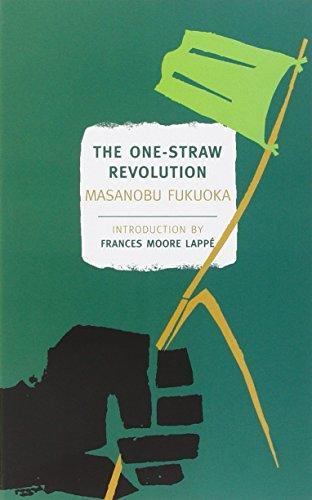Paperback, 224 pages
en-Latn-US language
Published June 2, 2009 by New York Review Books.
An Introduction to Natural Farming New York Review Books classics

Paperback, 224 pages
en-Latn-US language
Published June 2, 2009 by New York Review Books.
Six decades ago in postwar Japan, long before Michael Pollan or Alice Waters, Masanobu Fukuoka, a laboratory scientist who had studied plant enzymes and rhizomes in Tokyo laboratories and had worked with poisonous wartime chemicals during the devastations of the Second World War, headed back to the land his father's family farmed for nearly 1,400 years. There he painstakingly recovered and developed a method of farming that aligned itself as closely as possible with natural principles. While Japan set itself on a breakneck course toward modernization, Fukuoka grew rice in the opposite way, refusing to farm with chemicals that would annihilate even something as small as a leaf beetle. Call his book "Zen and the Art of the Wild Cucumber," or see Fukuoka as a Japanese Thoreau tending the whole universe in a beanstalk -- however you approach Fukuoka's rich philosophical side, it's important also to notice that his deep …
Six decades ago in postwar Japan, long before Michael Pollan or Alice Waters, Masanobu Fukuoka, a laboratory scientist who had studied plant enzymes and rhizomes in Tokyo laboratories and had worked with poisonous wartime chemicals during the devastations of the Second World War, headed back to the land his father's family farmed for nearly 1,400 years. There he painstakingly recovered and developed a method of farming that aligned itself as closely as possible with natural principles. While Japan set itself on a breakneck course toward modernization, Fukuoka grew rice in the opposite way, refusing to farm with chemicals that would annihilate even something as small as a leaf beetle. Call his book "Zen and the Art of the Wild Cucumber," or see Fukuoka as a Japanese Thoreau tending the whole universe in a beanstalk -- however you approach Fukuoka's rich philosophical side, it's important also to notice that his deep spiritual wisdom was co-terminous with his genius as a farmer. Without fertilizers or even tilling, he nonetheless harvested some of the greatest rice yields per acre in all of Japan. By the late '70s, when The One Straw Revolution was translated into English, Fukuoka had become a guru and disciple in seemingly radical -- but eminently sensible -- ways of approaching food, gardening, farming, and eating. His book is an early cult classic in organic and natural farming circles, but its implications stretch beyond them and continue to resonate as a global food crisis looms. Fukuoka believed that fertilizers and pesticides caused the very problems that they proposed to solve; that rather than annihilating pests, they invited them. He argued that natural foods, grown without these costly additives, should be the cheapest; and that the body living closest to the land and aligning itself with the seasons would be the healthiest. Thirty years later, as this book is re-released, Fukuoka's message -- now more urgent than ever -- remains a deeply nourishing clarion call.